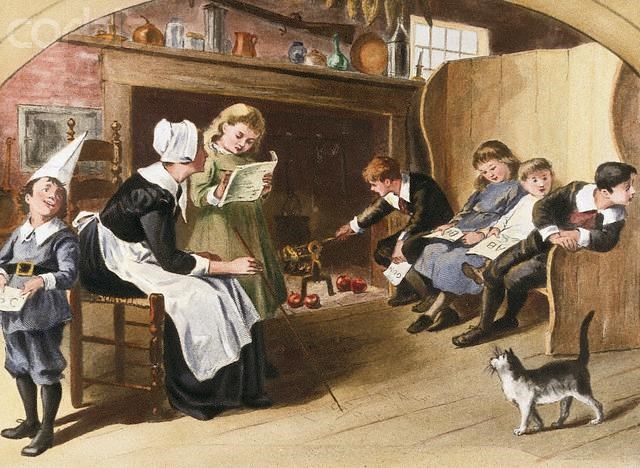Last updated: June 4, 2021
Article
William Clark’s Early Education

An illustration of an early American home school. Public Domain.
It can be surmised that William could have been tutored by his older brother, George Rogers Clark, who had a year or so of formal education and a lifetime of wilderness skills to teach his younger brother.
Even though Clark lacked a formal education, we know he could read, write, and was very proficient at many skills that helped him succeed in the military. Clark rose to the rank of captain in the Kentucky militia by the age of 20 and his attributes included military command, engineering and construction, land surveying, and cartography. He also managed the financial aspects of his family’s business, and later he aided in the financial situation of his famous older brother.
Of course, many throughout history have poked fun at Clark’s inability to spell words. However, phonetic, non-standard spelling was nothing unusual in the late 18th century. Nobody even proposed a standard method of spelling in America until Noah Webster’s first published a dictionary in 1806.
